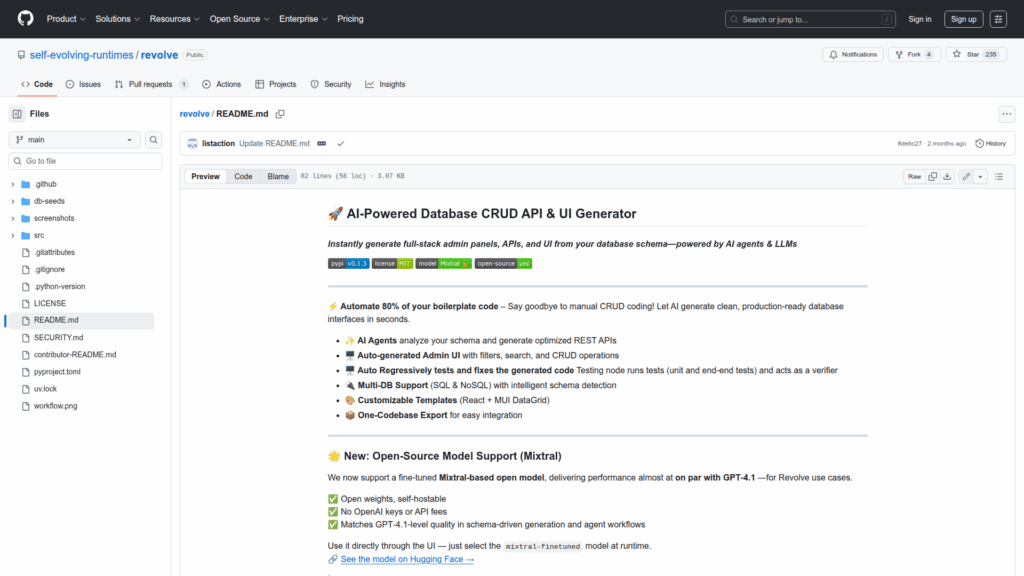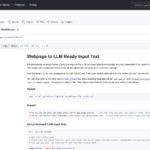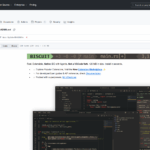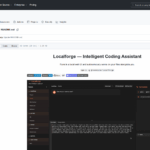revolve
Basic Information
Revolve is an AI-powered tool to instantly generate full-stack admin panels, REST APIs, and user interfaces from a database schema. It analyzes database schemas using AI agents and language models to produce production-ready CRUD code, an admin UI with search and filters, and automatic tests. The project targets developers and teams who want to avoid writing repetitive boilerplate for data-driven admin and internal tools. It supports multiple databases including MongoDB and PostgreSQL with planned support for MySQL, Redis, Cassandra and DynamoDB. The package is installable from PyPI and runs via a provided CLI command to start the API and UI. The README highlights built-in testing and verification steps where generated code is regressively tested and fixed by a testing node. The repo also advertises optional open-source model support enabling self-hosted inference for the generation workflows.








